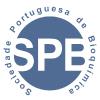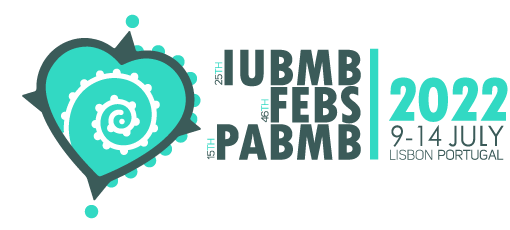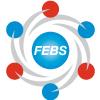
YSF Speakers
Keynote speakers
Four keynote talks will be delivered during the 20th FEBS Young Scientists' Forum by inspiring scientists:

Sanja Sever is an Associate Professor of Medicine and a group leader at Harvard Medical School (Massachusetts General Hospital), USA. Her research is focused on understanding molecular mechanisms of kidney disease and role of the GTPase dynamin as one of the major coordinators of multiple cellular processes, including endocytosis, actin cytoskeleton dynamics, and microtubule dynamics, in healthy and injured cells. Furthermore, she is interested in structure and function of podocytes and screening for potential drug targets. She is the recipient of numerous awards and prestigious grants.
Opening Lecture: 'Distinct and common molecular mechanisms of kidney diseases'

Eric Westhof, professor emeritus at the University of Strasbourg, France, is at the Institut de Biologie Moléculaire et Cellulaire in the unit Architecture et Réactivité de l’ARN of the CNRS. He is an executive editor of Nucleic Acids Research, the RNA Journal, the Journal of Molecular Recognition and BBRC. He is a member of EMBO, Deutsche Akademie der Naturforscher LEOPOLDINA, Academia Europaea, and the French Académie des Sciences. His research activities are centred on the evolution and recognition functions of RNA architectures.
Keynote Lecture: 'Ribosomal translation in health and disease'

Cecília Arraiano is Coordinating Investigator at the Instituto de Tecnologia Química e Biológica (ITQB) of Universidade Nova de Lisboa, Oeiras, Portugal, where she directs the Control of Gene Expression Laboratory. Her principal interests have been ribonucleases, and the understanding of the RNA processing and degradation mechanisms mainly in microbes. She has received numerous distinctions, including the Câmara Pestana/GlaxoSmithKline award and election to the Portuguese Academy of Sciences, EMBO and both the European and the American Academy of Microbiology.
Keynote Lecture: 'The amazing NEW world of RNA'

Nina Vardjan is Assistant Professor in Biochemistry and a coordinating director of the Neuroglia Projects in the Laboratory of Neuroendocrinology-Molecular Cell Physiology at Institute of Pathophysiology, Faculty of Medicine, University of Ljubljana and in the Laboratory for Cell Engineering at Celica Biomedical, Slovenia. She studies astroglial physiology in brain health and disease. She is the president of the Slovenian Physiological Society, member of FEPS and IUPS, and a core group member of the COST action European Research Network on Signal Transduction.
Closing Lecture: 'Astroglial excitability in brain health and disease'
Career Skills Contributors
David del Álamo (Germany): EMBO fellowships
Dr David del Álamo started his scientific career in Madrid working on developmental genetics in the fruit fly Drosophila melanogaster. After one postdoc in New York and one in Paris also exploring different aspects of fly development and cellular polarity, he became a scientific editor for EMBO Press. He spent 5 years as an editor, first for EMBO Reports and then for The EMBO Journal. In 2016, he became the Head of the EMBO Fellowship Programme.
Alain Krol (France): FEBS Fellowships
Prof. Alain Krol is Director of Research emeritus at the CNRS and Professor conventionné at the University of Strasbourg. He has served as a FEBS Fellowships Committee member for four years (2013–2016) and has been the Chair since 2017. From the beginning of his career, his research interests have been centred on the function and structure of various RNAs involved in RNA maturation and translation.
Keith Elliott (United Kingdom): CV writing
Dr Keith Elliott has spent 40 years teaching and researching, mainly in the areas of metabolism and enzymology at the University of Manchester, developing a particular interest in education and career development. He has chaired the Education Committee and been Careers Advisor for the UK Biochemical Society. He was a founder member of the FEBS Education Committee and has run workshops on educational methods and career development in 25 FEBS countries. He has been running CV support sessions at the YSF since 2007 and was awarded the FEBS Diplôme d’honneur in 2014 for his contributions.
Vlastimil Kulda (Czech Republic): CV writing
Dr Vlastimil Kulda was a chair of the local organizing committee of the 18th FEBS YSF (2018), which was held in Prague. He teaches medical chemistry and biochemistry at Charles University, Faculty of Medicine in Pilsen. His research activities are focused on microRNAs in carcinogenesis.
Duncan Wright (United Kingdom): Writing abstracts
Dr Duncan Wright is the editorial manager of FEBS Open Bio, an open access journal for the publication of technically sound research articles across the molecular and cellular life sciences. He previously worked for the journal Molecular Oncology and as developmental editor at Academia Sinica, Taipei, during which time he gave talks on how to write a scientific article across Taiwan.
Miguel A. De la Rosa (Spain): Giving scientific talks
Prof. Miguel A. De la Rosa has been the FEBS Congress Counsellor since 2015, and before that served as FEBS Executive Committee Vice-chair and Chair in 2013–2014. His research interests are structure–activity relations of biological macromolecules and, in particular, the protein–protein and protein–nucleic acid interactions which are crucial for a very broad range of cell processes and diseases. He uses a clear-cut multi- and interdisciplinary technology, ranging from molecular and cell biology to biochemistry, biophysics, structural biology and computational chemistry. Prof. De la Rosa has published ca. 200 peer-reviewed articles, 4 books and 2 patents, and has been invited to deliver more than 150 lectures worldwide. As university professor with over 40 years’ experience, he has supervised 22 PhD students and more than 20 postdoctoral fellows.
Mark Roberts (United Kingdom): Public engagement
Dr Mark Roberts is a biochemist based at the Universty of Oxford; prior to this he was at Queen Mary University of London. His research area is the cell biology of dental pathogens. He is a member of the FEBS Science and Society Committee, the UK Biochemical Society Education, Training and Public Engagement Committee and the UK Biochemical Society policy advisory panel. He has organized and been involved in numerous science communication activities from science fairs to museum exhibitions.
Ferhan G. Sağin (Turkey): Teaching and training
Ferhan G. Sağin (MD, PhD) is a full professor of Biochemistry at Ege University Medical Faculty. Besides delivering undergraduate courses at the Medical Faculty, she is an active researcher and supervisor at the postgraduate level. Her main research areas include biomarkers, biosensors, biological psychiatry and education. She has seats on a variety of Boards/Committees including the Turkish Biochemistry Society (TBS Executive Board/vice-president and TBS Academy/Chair), International Union of Biochemistry and Molecular Biology (IUBMB/Education Committee Member), and International Association of Medical Science Educators (IAMSE/Public Affairs Committee Member+Educational Scholarship Committee Member). She has served the FEBS Education Committee as a member (2015–2018) and has been the Chair since 2019.
David Adam (United Kingdom): Science communication
Dr David Adam is a best-selling author and an award-winning journalist, who covers science, environment, technology, medicine and the impact they have on people, culture and society. After nearly two decades as a staff writer and editor at Nature and The Guardian, he set up as a freelancer in 2019.
Antonio Ferrer-Montiel (Spain): Start-ups in science
Prof. Antonio Ferrer-Montiel is a Professor of Biochemistry and Molecular Biology at the University Miguel Hernández (UMH) and Director of the Institute of Research, Development and Innovation in Healthcare Biotechnology of Elche (IDiBE). Prof. Ferrer-Montiel works in the field of ion channels and their role in the pathophysiology of chronic pain. He has published 150 widely cited papers, led 20 projects, presented 30 patent applications, and mentored 25 doctoral theses. Apart from his research activities, Prof. Ferrer-Montiel is also an entrepreneur who has created 5 spin-off companies, which have brought 20 biotech products to market and 3 compounds to clinical trials. He is currently President of AntalGenics, Fastbase Solutions, and Prospera Biotech.
Israel Pecht (Israel): FEBS support for young scientists
Prof. Israel Pecht is a member of the Dept of Immunology of the Weizmann Institute of Science in Rehovot. He has served FEBS in several positions, such as Chair of the FEBS Fellowships Committee (1993–2001) and as FEBS Secretary General (2008–2017), a leading function of that organization. Prof. Pecht’s research field is biophysical chemistry, where he employed a range of methods, such as fast kinetics to different spectroscopic methods, aiming at resolving elementary steps of key biochemical and immunological processes, from antigen recognition by the immune system and its coupling to effector processes to electron transfer reactions mediated by proteins. He has published over 400 peer-reviewed research articles as well as reviews, patents and books. His many contributions have been recognized through numerous honorary positions and awards.
Irene Díaz-Moreno (Spain)
Dr Irene Díaz-Moreno is Full Professor of Biochemistry and Molecular Biology at the Institute of Chemical Research of the Scientific Research Centre Isla de la Cartuja – cicCartuja, in Seville. She was awarded her PhD by the University of Seville, and was an EMBO postdoctoral fellow (2006–2008) at the NIMR-MRC in London (UK), working on the regulatory mechanisms of mRNA decay by RNA-binding proteins. In 2010, she got a permanent position at the University of Seville, where she is developing research projects in the biointeractomics field, as well as on the post-translational regulation of biological macromolecules in the crosstalk between the nucleus and mitochondria in human disease. Dr Díaz-Moreno has held the FEBS Executive Committee position of Chair of the 'Working Group on the Careers of Young Scientists' since the start of 2018.



